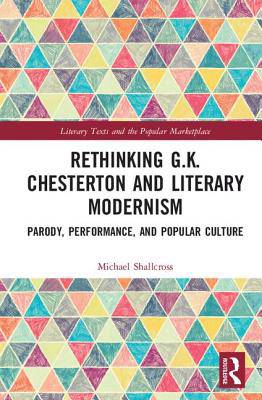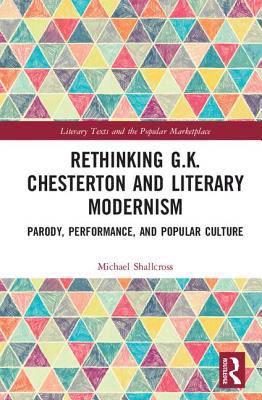
- Retrait gratuit dans votre magasin Club
- 7.000.000 titres dans notre catalogue
- Payer en toute sécurité
- Toujours un magasin près de chez vous
- Retrait gratuit dans votre magasin Club
- 7.000.0000 titres dans notre catalogue
- Payer en toute sécurité
- Toujours un magasin près de chez vous
Rethinking G.K. Chesterton and Literary Modernism
Parody, Performance, and Popular Culture
Michael ShallcrossDescription
This book comprehensively rethinks the relationship between G.K. Chesterton and a range of key literary modernists. When Chesterton and modernism have previously been considered in relation to one another, the dynamic has typically been conceived as one of mutual hostility, grounded in Chesterton's advocacy of popular culture and modernist literature's appeal to an aesthetic elite. In setting out to challenge this binary narrative, Shallcross establishes for the first time the depth and ambivalence of Chesterton's engagement with modernism, as well as the reciprocal fascination of leading modernist writers with Chesterton's fiction and thought.
Shallcross argues that this dynamic was defined by various forms of parody and performance, and that these histrionic expressions of cultural play not only suffused the era, but found particular embodiment in Chesterton's public persona. This reading not only enables a far-reaching reassessment of Chesterton's corpus, but also produces a framework through which to re-evaluate the creative and critical projects of a host of modernist writers--most sustainedly, T.S. Eliot, Wyndham Lewis, and Ezra Pound--through the prism of Chesterton's disruptive presence. The result is an innovative study of the literary performance of popular and 'high' culture in early twentieth-century Britain, which adds a valuable new perspective to continuing critical debates on the parameters of modernism.
Spécifications
Parties prenantes
- Auteur(s) :
- Editeur:
Contenu
- Nombre de pages :
- 308
- Langue:
- Anglais
- Collection :
- Tome:
- n° 11
Caractéristiques
- EAN:
- 9781138678736
- Date de parution :
- 30-11-17
- Format:
- Livre relié
- Format numérique:
- Genaaid
- Dimensions :
- 156 mm x 234 mm
- Poids :
- 607 g

Les avis
Nous publions uniquement les avis qui respectent les conditions requises. Consultez nos conditions pour les avis.






